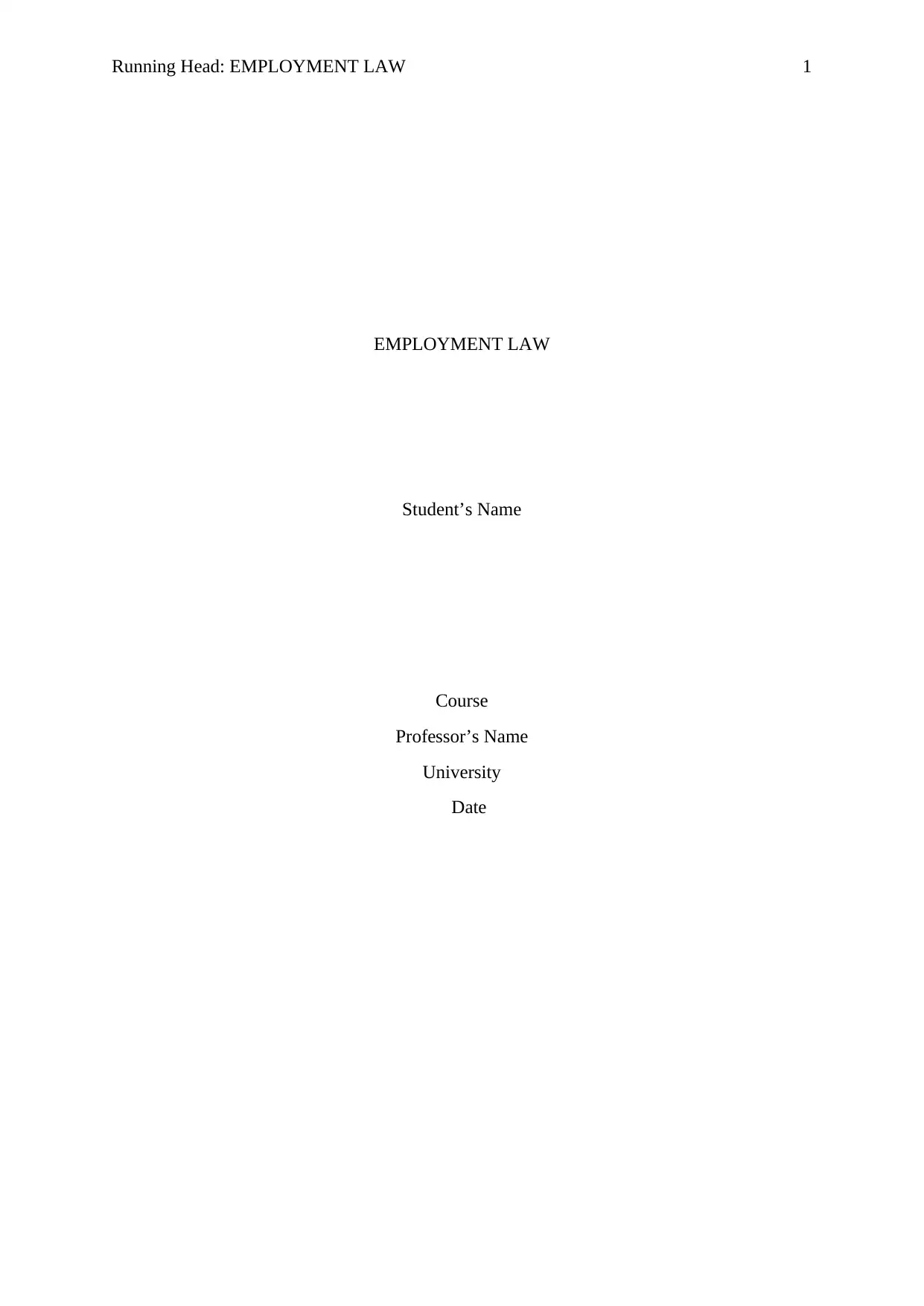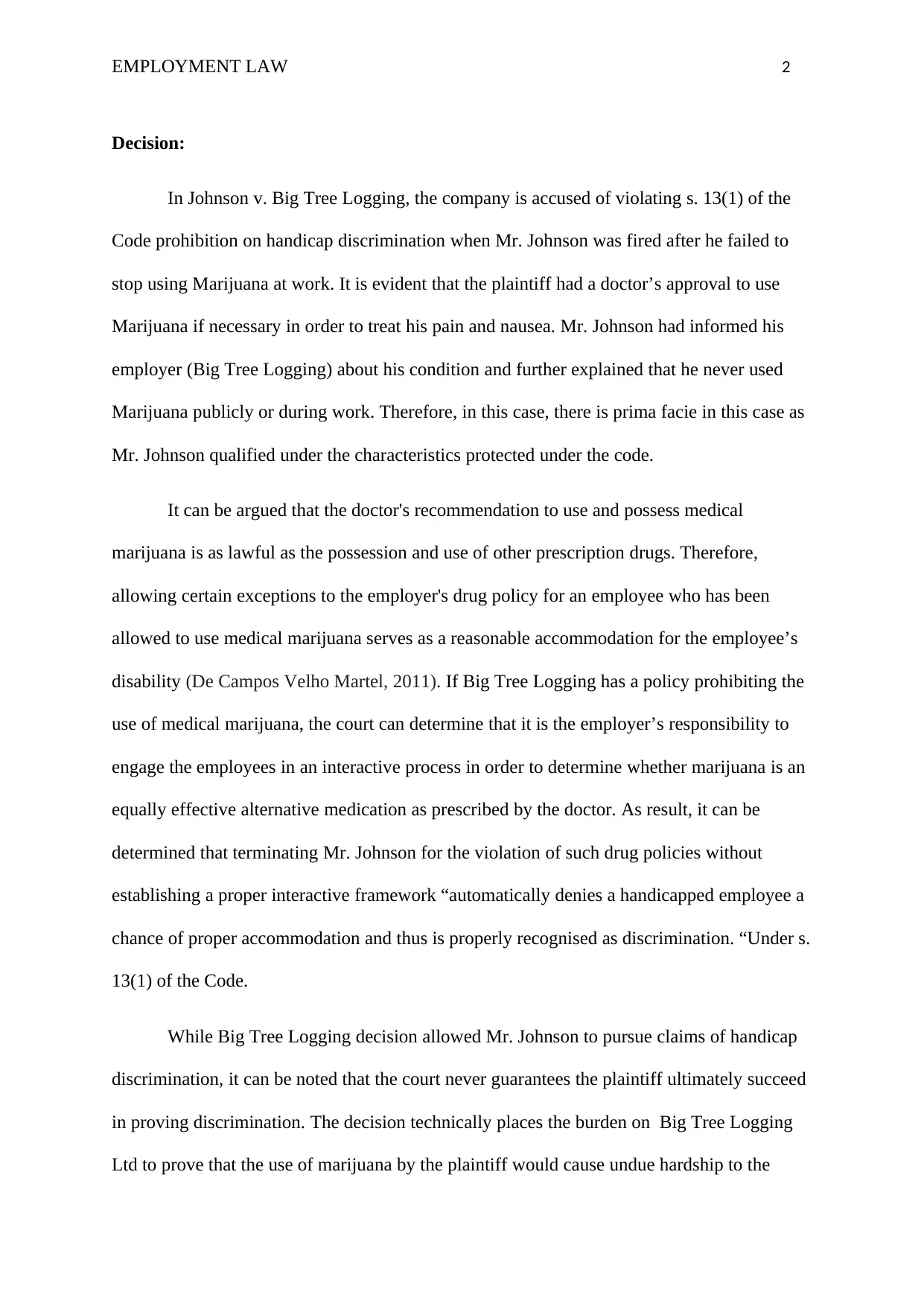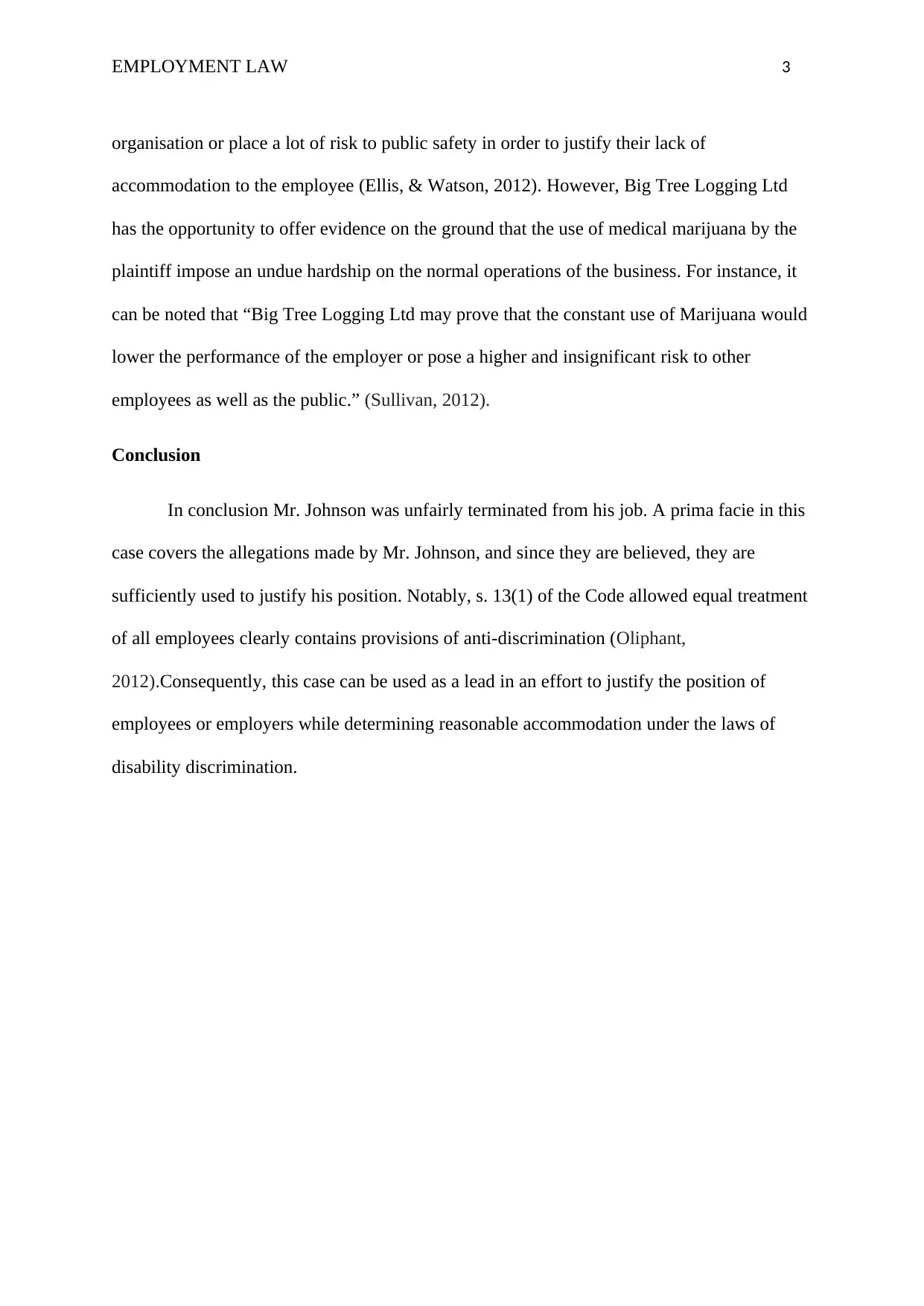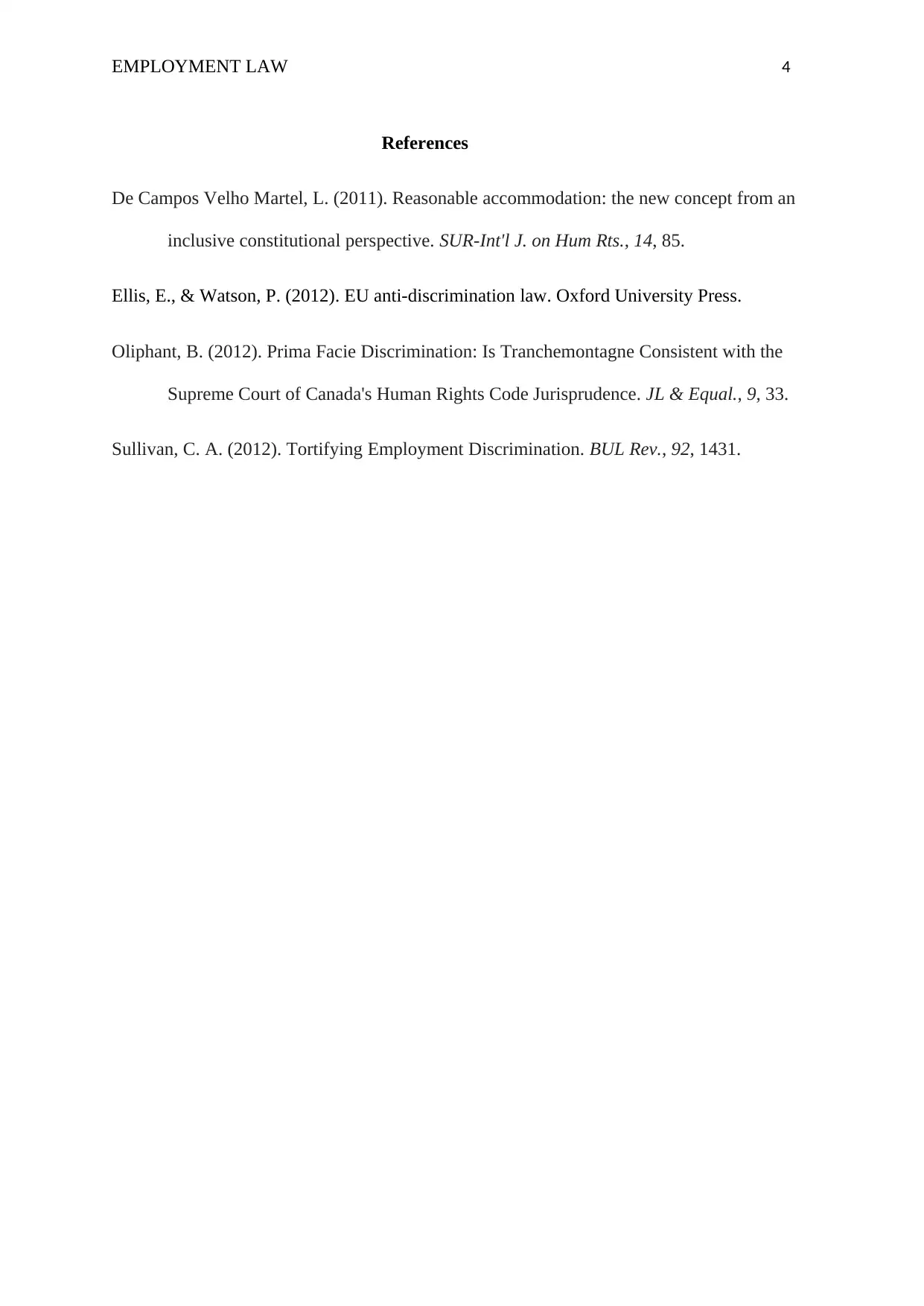BLAW 3920: Employment Law Case Study - Johnson v. Big Tree Logging
VerifiedAdded on 2023/04/25
|4
|708
|453
Case Study
AI Summary
This case study analyzes the Human Rights Tribunal's decision in Johnson v. Big Tree Logging, focusing on a complaint of employment discrimination based on physical disability. The complainant, Mr. Johnson, a cancer survivor, was terminated by Big Tree Logging after he failed to stop using marijuana, which he used for pain management with a doctor's approval. The company cited workplace safety concerns and its drug-free workplace policy. The analysis delves into the arguments of both parties, including the complainant's claim of discrimination under s. 13 of the Human Rights Code and the respondent's assertion of a bona fide occupational requirement (BFOR). The decision explores whether the employer adequately engaged in an interactive process to determine reasonable accommodation, considering medical marijuana as a form of accommodation. The study also references relevant legal precedents and provisions within the Human Rights Code, ultimately assessing the fairness of Mr. Johnson's termination and the responsibilities of both employers and employees in cases of disability discrimination.
1 out of 4






![[object Object]](/_next/static/media/star-bottom.7253800d.svg)